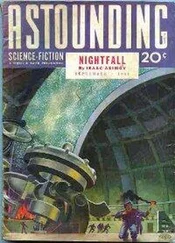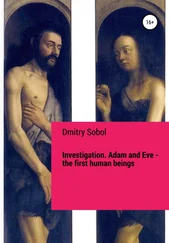Back home, she made a few phone calls to check that Zillah (aka Sarah) Leach and James Melcombe-Smith were indeed due to be married in the City of Westminster next morning, but found nothing. Jims must be doing the deed in South Wessex. She wondered what chance she had of securing an interview with Leonardo Norton but decided to wait until she’d talked to Zillah, who might have revelations for her beyond anything she’d yet dreamed of.
Compared with her last one and even her first, the wedding was a drab affair. When the new rule or law had come in, Zillah had thought it a brilliant idea that you no longer had to be married in a church or register office but could fix things up in a hotel, a country house, or anywhere, really, provided it was licensed for the purpose. She changed her mind when she saw the place Jims had chosen, a 1930s roadhouse just off the A10 near Enfield. Dressed in the white suit and wearing a new cloche hat with curly black and white feathers, she thought she might as well not have bothered but stayed in jeans and sweater.
The ceiling was half-timbered in black faux beams and the walls hung with equally faux linenfold paneling. Rustic chairs and tables stood about, and sofas upholstered in chintz covered in half-blown pink and red roses. Zillah had never before seen so much harness or so many saddles, bridles, spurs, and horse brasses, not even in the depths of Dorset. She was introduced to the owner of the place, a slightly superannuated pretty boy with a cockney voice who had once been Ivo Carew’s lover. Saying he was pleased to meet her, he winked rudely at Jims over her shoulder.
The registrar was a woman, young and good-looking. Zillah, for once antifeminist, wondered if she’d feel properly married with a woman performing the ceremony, though she knew registrars were mostly female these days. Ivo and the pretty boy were witnesses, and the whole thing passed off swiftly. Zillah had expected lunch even in this dump, some kind of celebration, but Jims, who hadn’t spoken to her except to say “I will” quickly said good-bye to everyone and drove her back to Westminster.
At last he addressed her. “Now we shall have to make arrangements for you and your children to decamp to Fredington Crucis.”
THIS WEEK, THOUGH Josephine wouldn’t remember, Minty would have worked at Immacue for twenty years. The end of May, it had been, when she was eighteen. As she started on the shirts, she tried to work out how many she must have ironed in those years. Say three hundred a week for fifty weeks a year, two being taken off for holidays, times twenty made 300,000 shirts. Enough to dress an army, Auntie had said when she’d done ten years. White ones, blue-and-white striped, pink-and-white, yellow-and-white, gray, and blue, there was no end to it. She picked the first one off the pile. It was light-and-dark-green, a rare combination.
As often happened when she let herself think about Auntie the ghost voice spoke to her. “It’s not three hundred thousand, you’re wrong there. You never did shirts on a Saturday, not when you first went there. Not for a good two years. And there was days when you never did fifty on account of there wasn’t fifty to do. That figure’s more like a hundred fifty thousand than three hundred.”
Minty didn’t say anything. Answering Auntie relieved her feelings but it caused trouble, too. Yesterday, when she’d shouted back, Josephine had come running out, wanting to know if she’d burnt herself. As if a person who’s ironed 300,000 shirts would burn herself.
“She ought to have a celebration for you just the same. She’s bone selfish, never thinks of anyone but herself and that husband of hers. If she has a baby you’ll find yourself looking after it. She’ll bring it in here and ask you to keep an eye on it while she goes to the shops or pops round the Chinese. That Ken, he may be over the moon, but he’ll not babysit. Men never do.”
“Go away,” said Minty, but very quietly.
“Now Mrs. Lewis knows more about these things than me. She’s had the experience. Giving birth, I mean. I had all the trouble and expense of rearing you but I never had the labor pains. If Jock hadn’t been killed in that train crash you’d maybe have had a baby yourself. You’d have liked to be a grandma, wouldn’t you, Mrs. Lewis?”
This time Minty couldn’t restrain herself. “Will you shut up? I wish you’d stayed deaf. She’s not going to have a baby and neither am I. Take that old woman out of here. I don’t want her near me.”
Josephine came out, as she was bound to. “Who were you talking to, Minty?”
“You,” Minty said boldly. “I thought you called me.”
“When do I ever call you when you’re doing the ironing? Now look, I’m going to nip out for a while and I’m leaving you in charge, right? I want to have a bit of lunch with Ken. Can I bring you anything back?”
Minty suppressed a shudder. She eat food someone else had touched? Food she hadn’t seen being bought? Josephine would never learn. “No, thanks. I’ve got my own sandwiches.”
She didn’t start on them till she’d finished the shirts. They were chicken sandwiches, made with white bread she’d sliced herself-you could never tell who or what had done the slicing with cut bread-fresh Irish butter and chicken she’d cooked and carved herself. She’d used the remaining big knife, twin of the one she’d had to get rid of because you could never tell how clean boiling made anything. If she ever saw that Mrs. Lewis she might need to use the big knife as she’d used the one that got rid of Jock’s ghost.
But she’d never seen Mrs. Lewis. Auntie manifested herself every so often, though she was never as clear and solid as Jock had been. Furniture and doors were always visible through Auntie. Sometimes she was no more than an outline, the middle part of her just a watery shape that shifted and waved like the mirage on the road she’d seen from the bus last week. Minty thought she might go away altogether if she resumed putting flowers on her grave. If she went back to praying to her. But why should she? She’d never defied Auntie while she was alive but she thought it was time to assert herself. Why should she be tied to that for the rest of her life, spending all that money and arranging those flowers, just to please a ghost?
She wasn’t even particularly afraid of Auntie. That must be because she’d known her so well and known, too, that Auntie wouldn’t do her any harm. Jock, after all, had already harmed her, helping himself to her money like that. And when he came back as a ghost he’d sometimes glared fiercely at her, opening his eyes wide and baring his teeth. But it was Mrs. Lewis showing herself that she really feared and she didn’t know why. If the old woman ever actually addressed her instead of always speaking to Auntie, she felt she might not be so alarmed by the thought of it. Mrs. Lewis had never done this, but attached herself to Auntie like her shadow and, like a shadow, was only there at certain times and on certain days. For instance, this morning there had been no word from her and when Auntie asked her a question she hadn’t replied. That might mean she wasn’t there and Auntie, for purposes of her own, had been speaking to the empty air. On the other hand-and this was what frightened Minty in a way she couldn’t have entirely explained-she might have accompanied Auntie from wherever they lived, a heaven, a hell, or an unknown, unnamed abode of shades, yet kept silent. This was hateful to Minty, who imagined her lurking unseen behind Auntie, taking Auntie away from her, noting everything Minty did, making judgments on her appearance and her home. Biding her time, but for what she couldn’t tell.
With the arrival of Josephine in the ironing room Auntie had disappeared and she hadn’t come back. Minty finished her sandwich and went to wash her hands. She washed her face as well because she couldn’t be sure she hadn’t got an invisible smear of butter on her chin. While she was in the washroom the bell rang on the outer door. She could hardly believe her eyes. Mr. Kroot’s sister was standing in the middle of the shop, clutching an armful of dirty clothes she’d pulled out of a very old and worn carrier bag.
Читать дальше











